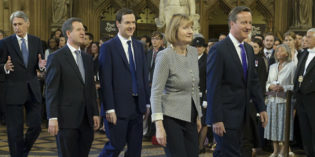Extending human and civic rights

Why defend democracy? Because the job of pursuing justice belongs to everybody
When we think about how to vote, writes Jeffrey Howard (University College London), we have a duty to try to achieve justice for everybody – not just ourselves. Victoria Woodhull, the first woman to run for US president. Photo: Public domain Similar PostsHow Covid-19 is altering our conception of citizenshipBook Review | Capitalism, Alone: The […]

Book review | Democracy Protests: Origins, Features and Significance, by Dawn Brancati
In Democracy Protests: Origins, Features and Significance, Dawn Brancati examines the conditions under which citizen discontent with governments transforms into democracy protests, placing particular emphasis upon the role played by economic crises. Drawing upon an original dataset based on 180 states between 1989 and 2011, this is a significant contribution to better understanding the factors and dynamics behind […]

Book review | Utopia for Realists, and How We Can Get There by Rutger Bregman
With Utopia for Realists and How We Can Get There, Rutger Bregman offers a new blueprint for constructing a better society for all, advocating the implementation of seemingly ‘utopian’ ideas, such as universal basic income, along the way. This is an assured and ambitious book, writes Peter Carrol, that deserves to be widely read. Utopia for Realists and How We […]

Rising violence against women in politics threatens democracy itself
Violence against female politicians – and the threat of it – is becoming much more common, and not only in Britain. Mona Lena Krook looks at how social media has opened up new channels for harassment, what distinguishes misogynistic attacks, and how other countries are responding to them. Ignoring or playing down the problem is not an […]

Book review | A Woman’s Work, by Harriet Harman
In A Woman’s Work, Britain’s longest-serving female MP Harriet Harman offers a new memoir reflecting on her experience of high-level politics and the recent history of the Labour Party from the late 1970s to the present. Despite a small number of notable omissions, this is a valuable addition to the genre of political autobiography that puts women’s lived experience […]

Tilting at linguistic windmills: a million Welsh speakers
The target of creating one million Welsh speakers in Wales by 2050 announced by the Welsh Government as the central goal of its Welsh Language Strategy (‘Cymraeg 2050. A million Welsh speakers’) has captured the headlines: and why should it not? After all, that would mean effectively doubling the number of Welsh speakers. It would […]

Trump, Brexit and baby Searyl: what is the populist signal really telling us?
Are people rejecting democracy, as some scholars suggest? Matt Flinders asks whether a focus upon all things ‘post’ – post-Trump, post-Brexit, post-truth, post-democratic – has prevented scholars and social commentators from looking beyond or beneath the populist signal. Trump’s success, and that of other populists, is little more than the socio-political manifestation of a deeper set of structural […]

Audit 2017: How democratic is the protection of workers’ rights within the UK?
During the 20th century, developed societies increasingly accepted that democracy could not stop at politics, and had to extend to aspects of the economy as well. Democracy in the economy began – and continues – with workers’ rights. As part of the 2017 Audit of UK Democracy, Ewan McGaughey and the Democratic Audit team explore how far they have […]




 Democratic Audit's core funding is provided by the Joseph Rowntree Charitable Trust. Additional funding is provided by the London School of Economics.
Democratic Audit's core funding is provided by the Joseph Rowntree Charitable Trust. Additional funding is provided by the London School of Economics.